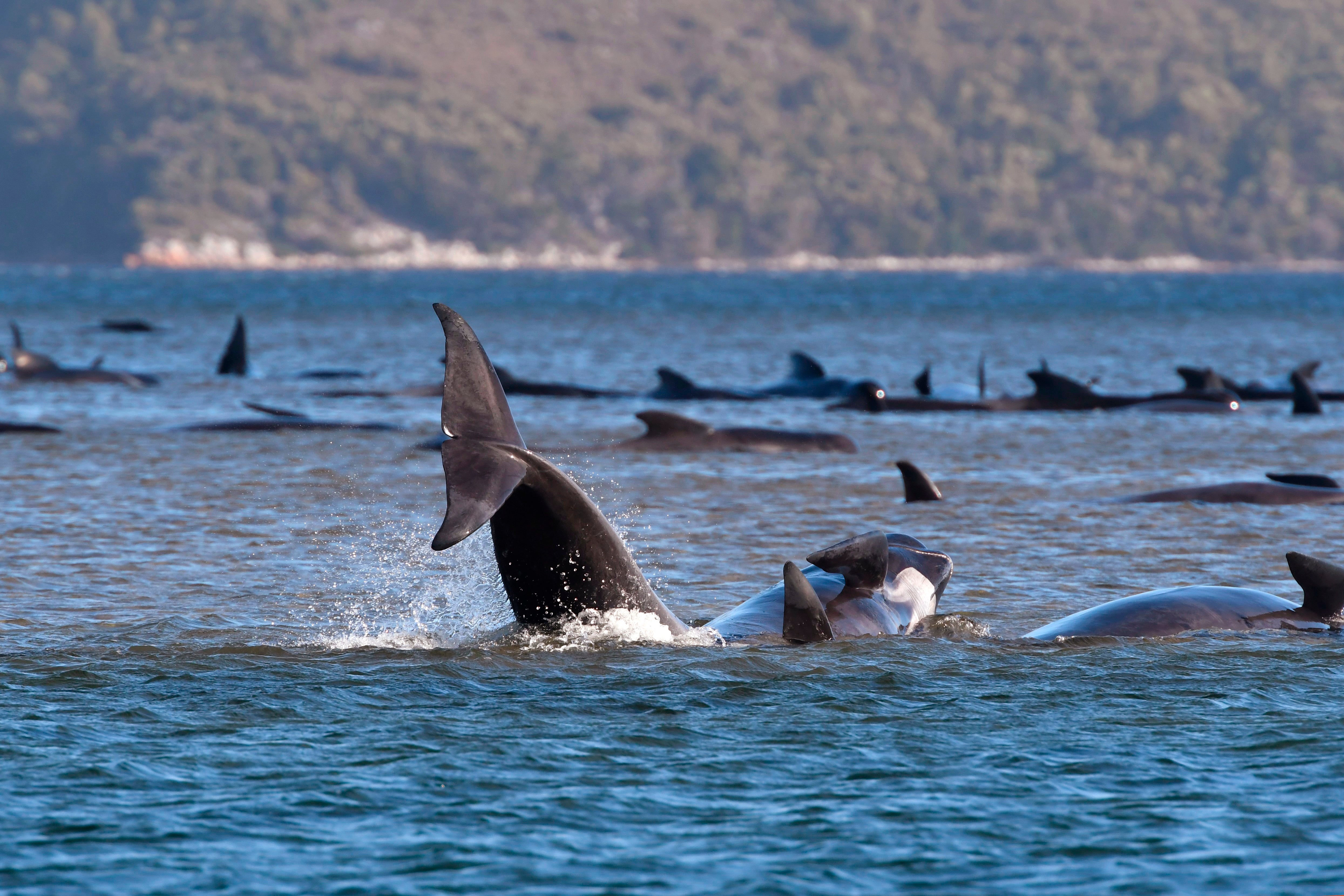Still no cause for mass pilot whale stranding in Australia
The reason for Australia’s biggest mass whale stranding will probably remain a mystery but the social nature of the species involved may have played a part

The reason for Australia’s biggest mass whale stranding will probably remain a mystery but the social nature of the species involved may have played a part, a marine mammal specialist said Saturday.
Officials said 108 of some 470 long-finned pilot whales had been rescued from sandbars at Macquarie Harbour on the island state of Tasmania’s west coast. There are no living whales remaining in the harbor, the Parks and Wildlife Service said.
The pod got into trouble earlier this week, with efforts now turning to the task of disposing 350 carcasses at sea, which the wildlife service said will take a number of days.
Pilot whales are known for stranding in mass groups. The top five largest beachings in Tasmania dating to the early 1800s, all are from the same species.
David Hocking, a marine mammal scientist at Monash University in Melbourne, said pilot whales form strong family bonds and can travel in groups of up to 1,000.
“If one or a few animals get themselves into trouble, they put out a distress call,” Hocking said. “Rather than running away, their instinct is to come together as a group because they have safety in numbers. But that means a few animals getting into trouble means they call more animals into that same area.”
Long-finned pilot whales are more closely related to dolphins and rely on echolocation, a series of rebounding clicks, to navigate.
Australia’s largest mass stranding had previously been 320 pilot whales near the Western Australia state town of Dunsborough in 1996. Tasmania’s previous largest stranding involved 294 whales on the northwest coast in 1935.
Bookmark popover
Removed from bookmarks